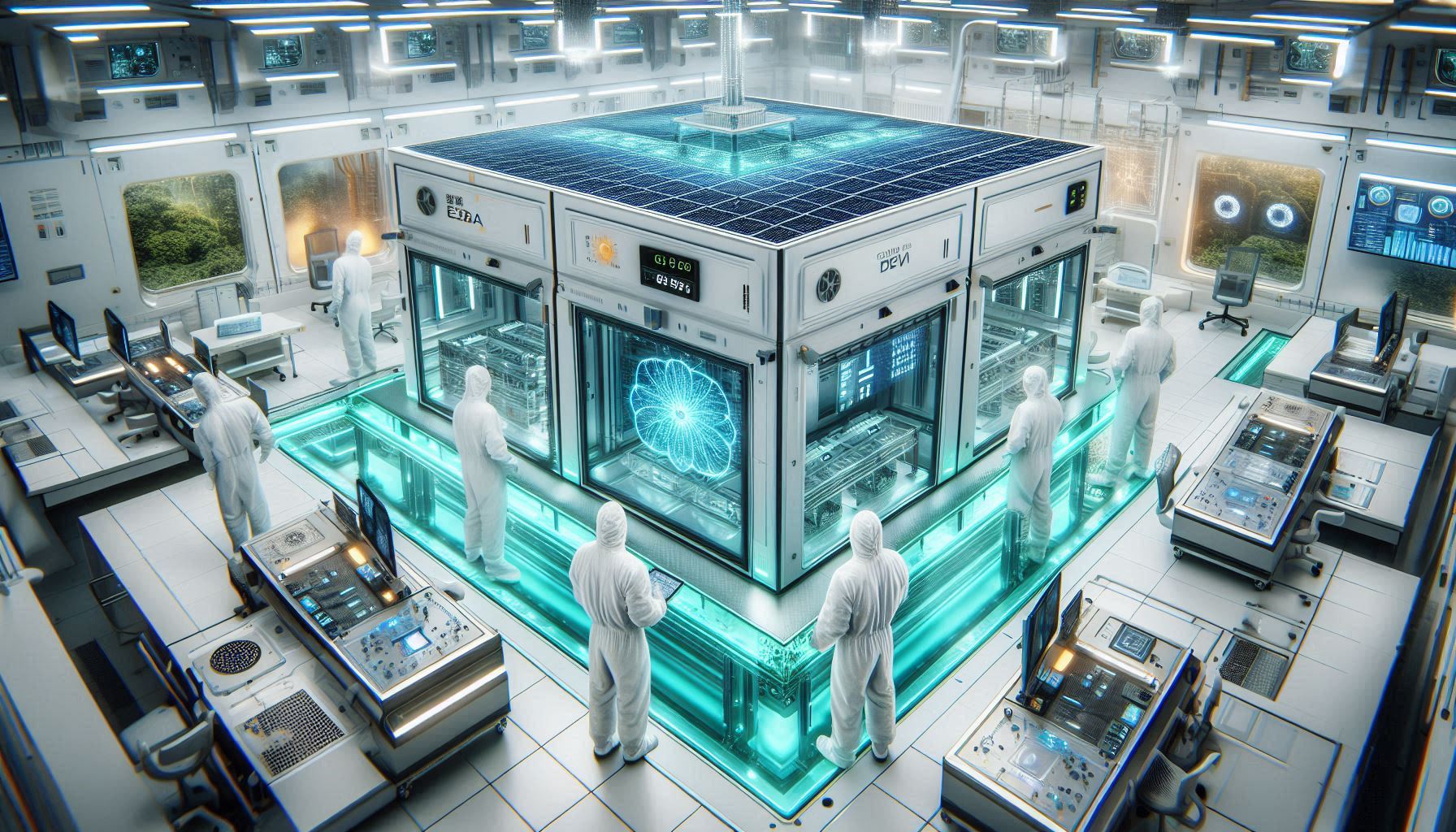Why HEPA Filters Are Critical in Operation Theatres
In operation theatres, HEPA (High-Efficiency Particulate Air) filters are the unsung heroes safeguarding patient outcomes. These filters capture 99.97% of airborne particles as small as 0.3 microns, including bacteria, viruses, and surgical debris. Without proper HEPA filters maintenance, even minor contamination risks can lead to surgical site infections, compromising patient safety. For instance, a Mumbai-based hospital reduced post-surgery infections by 30% after upgrading its HEPA replacement protocol—a testament to their vital role.
What is the HEPA Filter
A HEPA (High-Efficiency Particulate Air) filter is a critical air purification technology designed to trap 99.97% of particles as small as 0.3 microns. These particles consist of dust, pollen, bacteria, viruses, and even smoke. Originally developed for nuclear facilities, HEPA filters are now indispensable in healthcare, cleanrooms, and homes. For instance, during the 2020 pandemic, hospitals globally relied on HEPA systems to reduce airborne virus transmission.
Where Are HEPA Filters Used
HEPA filters are crucial for industries that require ultra-clean environments. Key applications include:
- Cleanrooms
- Pharmaceuticals: Used in sterile manufacturing zones to prevent microbial contamination. For example, a Pune-based pharma facility reduced batch rejections by 35% after upgrading to H14 HEPA filters.
- Semiconductors: Eliminate nanoscale particles during chip fabrication. A semiconductor plant in Gujarat attained ISO Class 5 cleanliness by incorporating HEPA-integrated laminar airflow systems.
- Biotechnology: Maintain aseptic conditions for cell culture and genetic research.
- Healthcare
- Operation Theatres: Critical for infection control. A Chennai hospital reported a 40% drop in post-surgical infections after adopting HEPA-compliant HVAC systems.
- Isolation Wards: Contain airborne pathogens like tuberculosis or SARS-CoV-2.
- Research & Development Labs
- BSL-3/4 Labs: Handle hazardous bioagents safely. HEPA filters in exhaust systems guarantee no leakage of contaminants, ensuring a sterile environment.
- Nanotechnology Labs: Capture nanoparticles during material synthesis.
- Industrial Settings
- Petrochemical Refineries: Remove dust and fumes in hazardous zones. Explosion-proof HEPA systems are integrated with HVAC safety protocols to ensure secure and reliable operation in hazardous environments.
- Aerospace Manufacturing: Protect precision components from debris.
- Commercial Spaces
- Data Centers: Prevent dust from damaging servers.
- Food Processing: Ensure compliance with FSSAI standards by filtering airborne microbes.
In India, a Bengaluru semiconductor plant uses HEPA filters to eliminate nanoscale contaminants, ensuring chip precision.
Types of HEPA Filters
HEPA filters are graded by efficiency:
- H13 : 99.95% efficiency (common in homes and commercial spaces).
- H14 : 99.995% efficiency (used in operation theatres and ISO 5 cleanrooms).
- ULPA : Ultra-Low Penetration Air (ULPA) filters provide 99.999% efficiency, making them perfect for capturing nano-contaminants.
A Delhi hospital reduced surgical infections by 40%
Step-by-Step Guide to Replacing HEPA Filters
Replacing HEPA filters demands precision to maintain sterile environments. Follow these steps:
Step 1: Pre-Installation Preparation
- Shut down HVAC systems to avoid contamination.
- Use a particle counter to verify air quality before removal.
Step 2: Safe Removal and Disposal
- Seal old filters in plastic bags immediately to prevent pathogen spread.
- Follow biomedical waste disposal protocols as per India’s CPCB guidelines.
Step 3: Installation Best Practices
- Ensure airtight seals using gaskets compliant with ASHRAE Standard 52.2 .
- Test airflow post-installation to maintain 20–30 air changes per hour (ACH).
Maintenance Best Practices for Longevity
Regular upkeep extends HEPA filter lifespan and efficiency:
- Inspect Monthly: Check for physical damage or clogging.
- Monitor Pressure Drop: Replace filters when pressure exceeds 1.5 times the initial reading, as recommended by ISHRAE.
- Clean Surrounding Areas: Dust near filter housings can compromise performance.
- Humidity Control: Maintain relative humidity between 40–60% to prevent microbial growth and ensure optimal filter performance.
A Chennai hospital’s case study highlighted that quarterly inspections reduced filter replacements by 20%, aligning with ECBC (Energy Conservation Building Code) sustainability goals.
Compliance with Global and Indian Standards
Adherence to codes ensures operational and safety benchmarks:
- ASHRAE Standard 52.2: Governs filter efficiency testing.
- ISO 14644-1: Defines cleanroom air quality standards, which are essential for maintaining the sterile environment in modular operation theatres.
- ISHRAE Guidelines: Recommend HEPA filter replacement every 1–3 years based on usage.
Linking these standards to practical applications, such as integrating HEPA systems with smart HVAC controls, enhances compliance and efficiency.
Challenges in HEPA Filter Management
Even seasoned facilities face hurdles:
- Cost Concerns: High-grade HEPA filters cost ₹15,000–₹30,000 per unit.
- Training Gaps: Staff errors during replacement can void warranties.
- Humidity Control: Excessive moisture shortens filter life—a common issue in India’s monsoon-prone regions.
Future Trends: Smart Monitoring and Sustainability
Emerging technologies are reshaping HEPA maintenance:
- IoT Sensors: Enable real-time tracking of filter performance (e.g., AI-driven HVAC systems).
- Recyclable Filters: AI-powered HVAC systems forecast replacement schedules, cutting downtime by 30% and promoting sustainability. Reduce waste, supporting India’s push for circular economies.
HEPA Filters for Home Use
Home HEPA systems combat allergens like pollen and pet dander. Key considerations:
- Room Size : Match the CADR (Clean Air Delivery Rate) to the room size to ensure optimal air filtration and efficiency.
- Noise Levels : Opt for models under 50 dB for bedrooms.
- Cost : Basic units start at ₹8,000, while medical-grade models cost up to ₹25,000 (shop HEPA filters ).
FAQs
Q1: How often should HEPA filters be replaced in operation theatres?
A: Typically every 12–36 months, depending on usage and manufacturer guidelines.
Q2: Is it possible to clean HEPA filters instead of replacing them?
A: No. Cleaning risks damaging the delicate fibers; always replace as advised.
Q3: What safety precautions are needed during replacement?
A: Use PPE, seal old filters immediately, and conduct post-installation leak tests.
Q4: How do I choose the right HEPA filter for my OT?
A: Prioritize filters rated ISO 35 H (99.95% efficiency) and consult ASHRAE standards.
Q5: Does humidity affect HEPA filter lifespan?
A: Yes. Keep relative humidity between 40–60% to prevent microbial growth and extend the lifespan of filters.
Q6: Are there eco-friendly HEPA disposal methods?
A: Some providers offer recycling programs; inquire during procurement.
Disclaimer:
Some links in this article are affiliate links, such as those for HVAC tools. These may generate a small commission at no extra cost to you, supporting our work. We never compromise editorial integrity for partnerships.
About the Author:
Mr. Om Prakash, with over 18 years of hands-on experience in the HVAC industry, brings unmatched expertise in cleanroom, pharmaceutical, semiconductor, data center, commercial, and industrial HVAC systems. As the founder of HVAC Technocrat, he specializes in customized HVAC design, energy efficiency audits, retrofit planning, and turnkey consultancy services across India. His deep understanding of critical environments and complex building needs ensures every solution is efficient, reliable, and future-ready. Through his writings, he simplifies HVAC concepts and shares real-world insights to support professionals, facility managers, and decision-makers. For any enquiries or project support, feel free to call or WhatsApp at +91 9908091942, email at hvactechnocrats@gmail.com, or visit www.hvactechnocrat.com. Follow his LinkedIn profile https://www.linkedin.com/in/hvactechnocrats/ for updates.












Leave a Reply